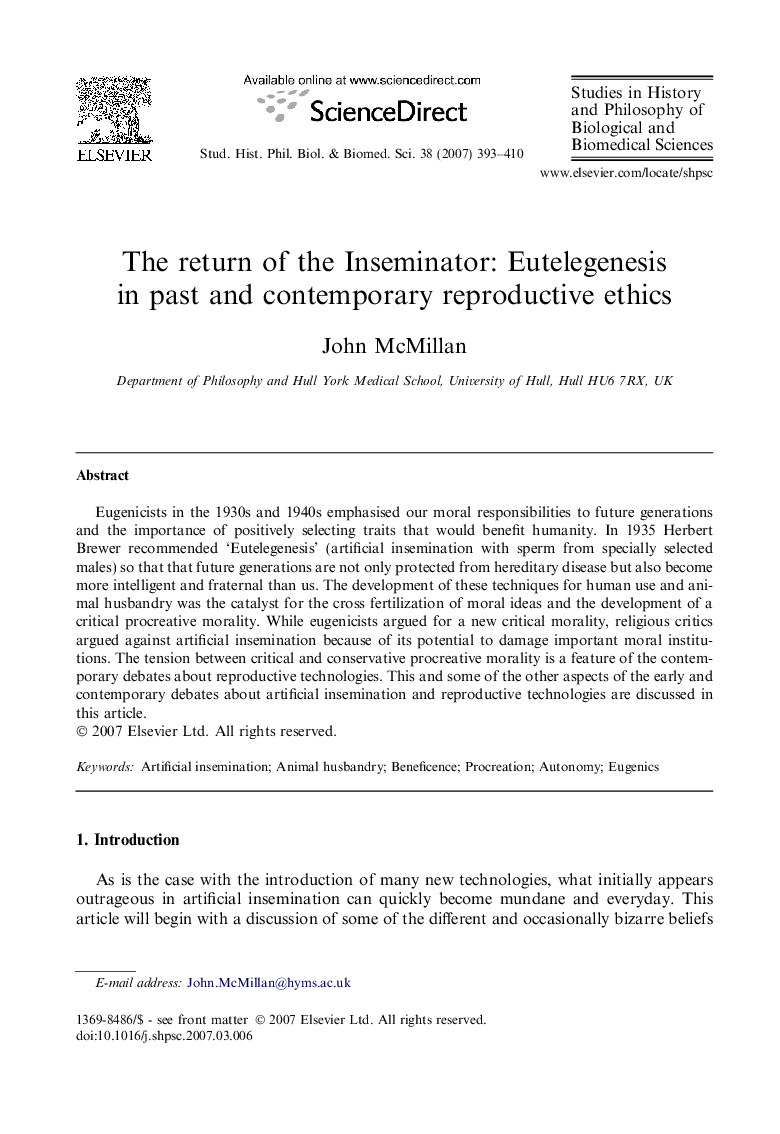| Article ID | Journal | Published Year | Pages | File Type |
|---|---|---|---|---|
| 1162239 | Studies in History and Philosophy of Science Part C: Studies in History and Philosophy of Biological and Biomedical Sciences | 2007 | 18 Pages |
Abstract
Eugenicists in the 1930s and 1940s emphasised our moral responsibilities to future generations and the importance of positively selecting traits that would benefit humanity. In 1935 Herbert Brewer recommended 'Eutelegenesis' (artificial insemination with sperm from specially selected males) so that that future generations are not only protected from hereditary disease but also become more intelligent and fraternal than us. The development of these techniques for human use and animal husbandry was the catalyst for the cross fertilization of moral ideas and the development of a critical procreative morality. While eugenicists argued for a new critical morality, religious critics argued against artificial insemination because of its potential to damage important moral institutions. The tension between critical and conservative procreative morality is a feature of the contemporary debates about reproductive technologies. This and some of the other aspects of the early and contemporary debates about artificial insemination and reproductive technologies are discussed in this article.
Related Topics
Life Sciences
Agricultural and Biological Sciences
Agricultural and Biological Sciences (General)
Authors
John McMillan,
